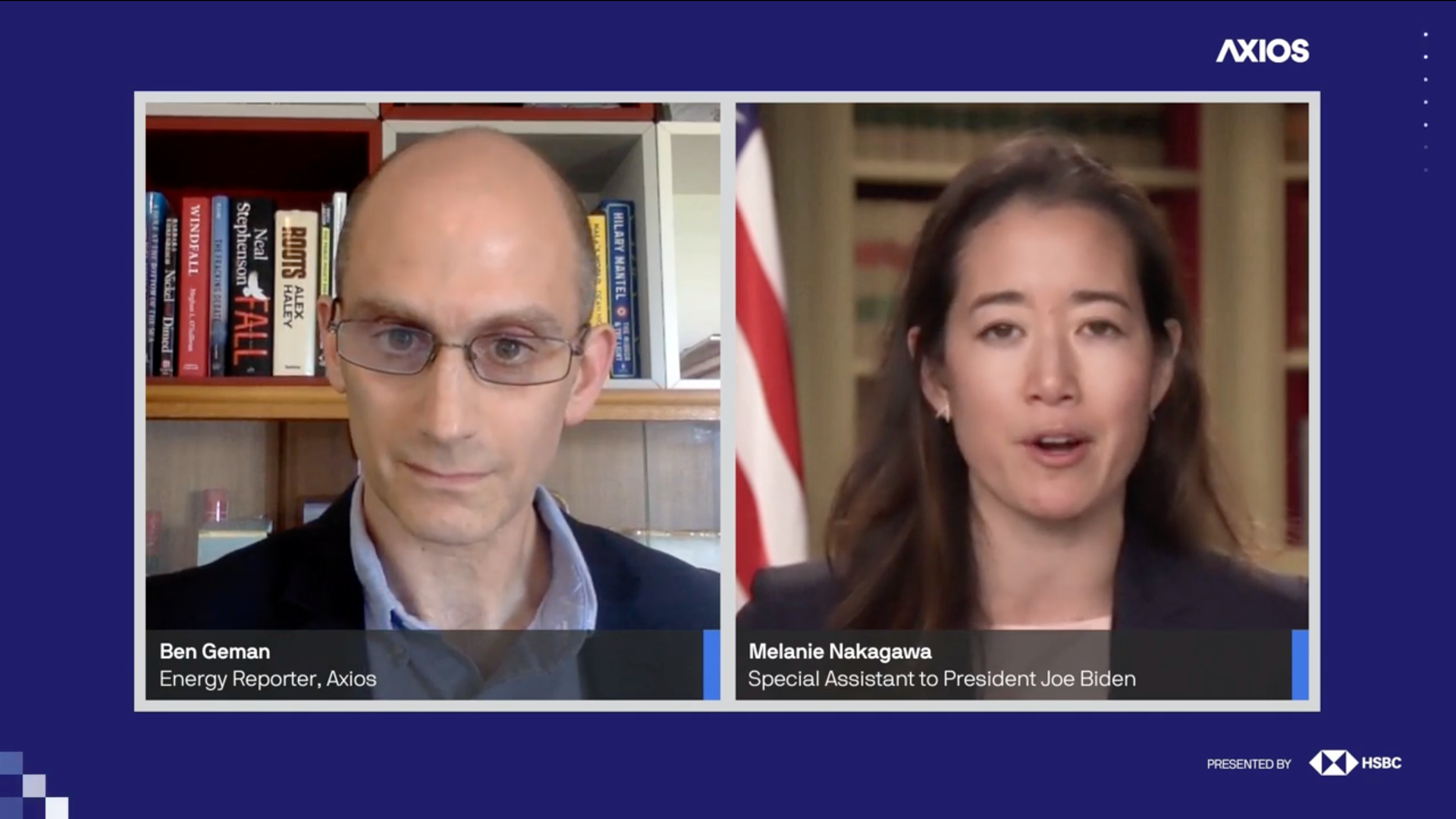Biden official: 2020-2030 is the "decisive decade" for climate change action
Add Axios as your preferred source to
see more of our stories on Google.

Axios screenshot
Melanie Nakagawa, special assistant to the president and senior director for climate and energy, said that the 2020 decade is the "decisive decade" to make meaningful climate change action.
Why it matters: "Collectively, if commitments, policies and action can deliver a 7.6% emissions reduction every year between 2020 and 2030, we can limit global warming to 1.5 degrees Celsius," per the UN Environment program. "While there will still be climate impacts at 1.5 degrees Celsius, this is the level scientists say is associated with less devastating impacts than higher levels of global warming."
- If no action is taken, temperatures would rise to 3.2 degrees Celsius this century, which would lead to even wider-ranging and more destructive climate impacts.
- Any temperature above 2 degrees Celsius would lead to the disappearance of almost all reefs; the frequency and intensity of droughts, storms and extreme weather events would increase; insects would be twice as likely to lose half their habitat; among other consequences.
What she's saying: "I saw a great quote recently that says, you know, '2030 is the new 2050,' and I couldn't agree with that more. 2020 is really the decisive decade for action," Nakagawa said.
- "There's got to be a roadmap towards [2050]. So what are you doing in your 2020s? When we're looking at accountability, that's what we're looking for, is: what are countries, what are private sector institutions, what are cities and towns and others doing in this decade — the 2020s — get us on that path to 2050."
- "It's great to have a net zero 2050 timeline out there. But what's even better is to show us how you're getting there by 2030 ... It's one where actually we have a roadmap that gets you there and has the glide path towards the 2050s and that really means that now, the 2020s, is the time to really think through. How does that glide path work and what are the actions we're taking now, and in the next few years they're getting us towards those net zero targets."
Go deeper: Biden pledges to cut greenhouse gas emissions by up to 52% by 2030
